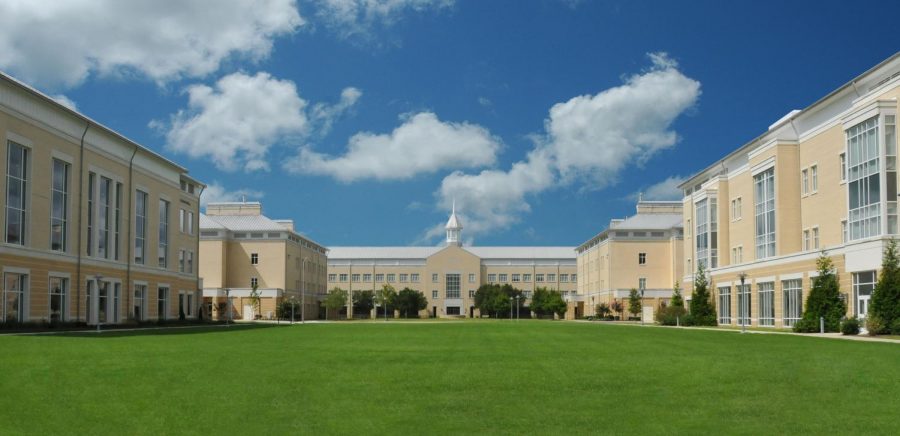MD community colleges prepare for reopening–mostly gradual
Courtesy of Wor-Wic Community College
Wor-Wic Community College in Salisbury (pictured) is one of three Maryland community colleges planning to offer all of their classes in person in the fall. Like most of the state’s 16 community colleges, AACC will hold some of its classes on campus next semester. AACC will keep at least 50% of its courses online.
May 17, 2021
As AACC prepares to bring about 30% of its classes back to its campuses in the fall, five of Maryland’s other 15 community colleges plan to keep their coursework almost completely online.
Like AACC, seven of the remaining colleges will offer some classes in person and some online. Three plan to open fully on campus in the fall.
In a Campus Current poll of the colleges in April, spokespeople for most of the schools described what they call a “soft reopening” that involves offering a few classes on campus in the fall and adding more in-person meetings in future semesters as the pandemic subsides.
Like all of the state’s community colleges, AACC closed its campuses in March 2020 as a precaution against the COVID-19 virus.
Because of the “evolving nature of the COVID-19 pandemic,” Cecil College President Mary Way Bolt said, “creating an exact timeline for resuming ‘normal’ operations is not feasible.”
Cecil College is only offering online courses in the fall, but has “created a tentative phased approach for our employees and students to return to campus.”
AACC plans to bring some sections of at least 30% of its courses to its Arnold, Glen Burnie and Arundel Mills campuses in August. Most of those will be 100-level and developmental courses, the college said.
In addition, faculty may choose to offer another 20% of classes in person. But at least half of AACC courses will remain online in the fall.
Other community colleges are doing something similar.
Eight community colleges will open in the fall with between 30% and 80% of courses in person. Those colleges are: AACC, Baltimore City Community College, Hagerstown Community College, Allegany College of Maryland, Prince George’s Community College, Community College of Baltimore County, Harford Community College and Howard Community College.
The campuses planning to offer nearly all courses online in the fall are: Cecil College, Chesapeake College, College of Southern Maryland, Frederick Community College and Montgomery College.
The three colleges that expect to offer 100% of their courses on campus for the fall are: Carroll Community College, Garrett College and Wor-Wic Community College.
“Though we cannot forecast with certainty, we expect that the majority of our campus community will be eligible to get a COVID-19 vaccine before the beginning of the fall semester,” President Richard Midcap of Garrett College wrote in a campus newsletter in March. “Classes designed for in-person delivery are expected to be delivered face-to-face on campus this fall semester, and staff will be expected to resume their on-campus roles.”
One of the colleges—Harford Community College—has scheduled 50% of its classes and 50% of its employees to be on campus at a time, but which classes and which employees will rotate throughout each week. Most face-to-face classes will be required labs, apprenticeships, certification classes and the test center, according to Communications Director Nancy Dysard.
“We realize that some students prefer face to face so we will be sure to meet students’ preferred needs as best we can,” Dysard said.
Carroll and Wor-Wic community colleges were fully open this semester and required students and faculty to wear masks, socially distance and learn online temporarily when classmates exposed them to COVID-19.
Garrett College was partially open in fall 2020, but went back to an all-online format in November as COVID-19 cases spiked in the region. Community College of Baltimore County held 30% of its classes in person this semester.
AACC held on-campus courses this semester only for students taking health sciences, sculpture, culinary, dance and a few other classes. Buildings were closed to the public and most staff worked from home.
All of the colleges with face-to-face classes required students to follow state and federal guidelines for pandemic protection.
Some of the schools will host in-person summer programs on campus.












